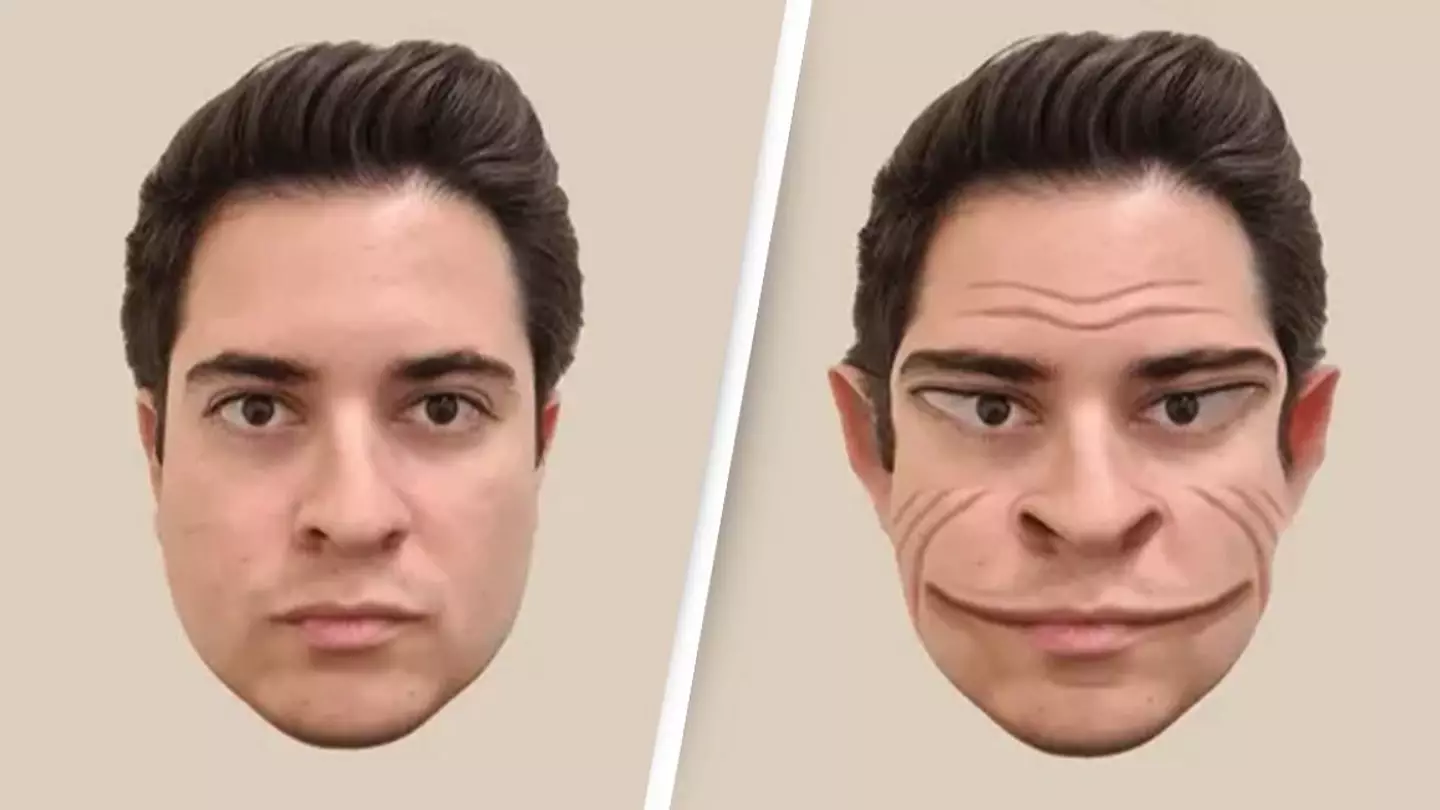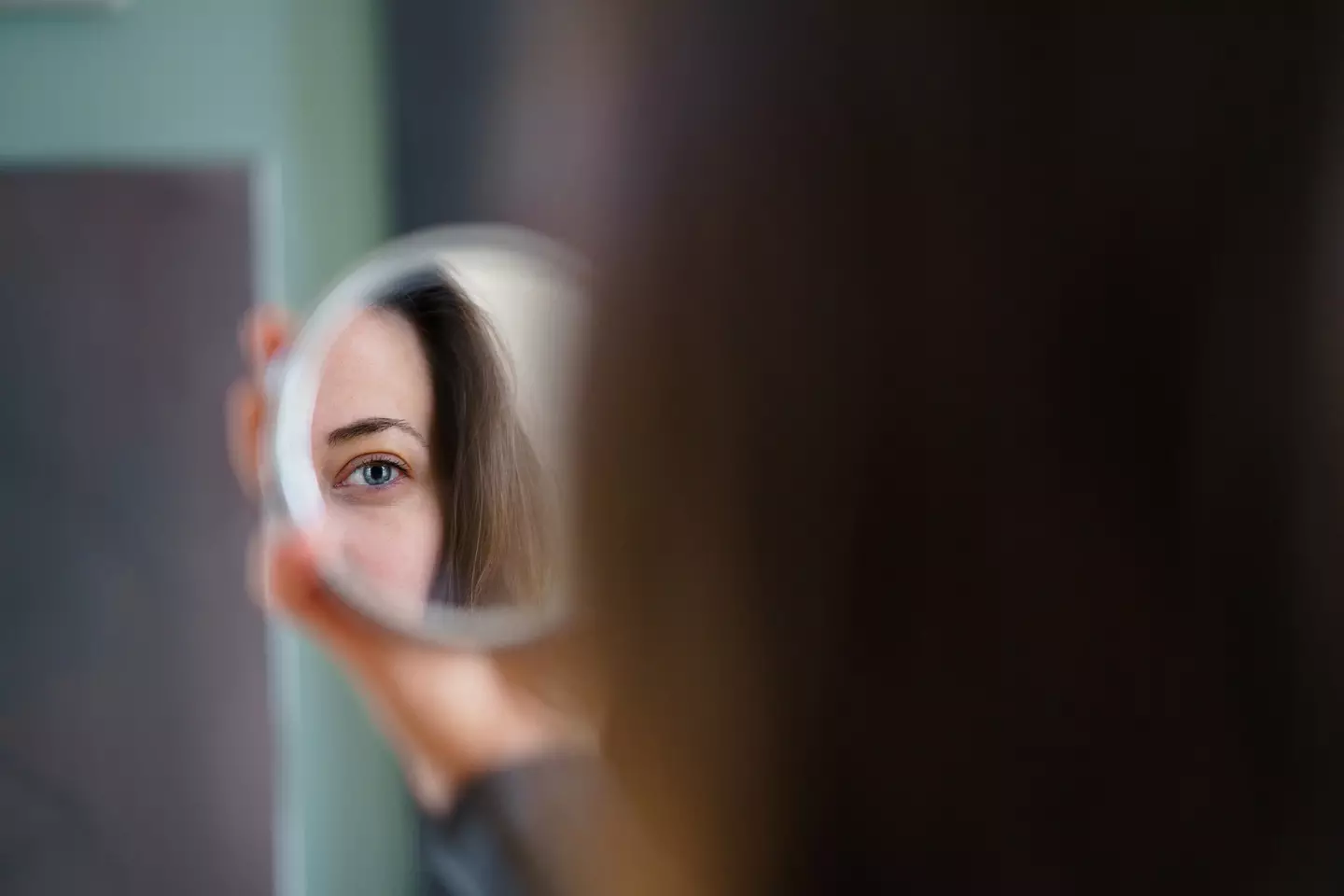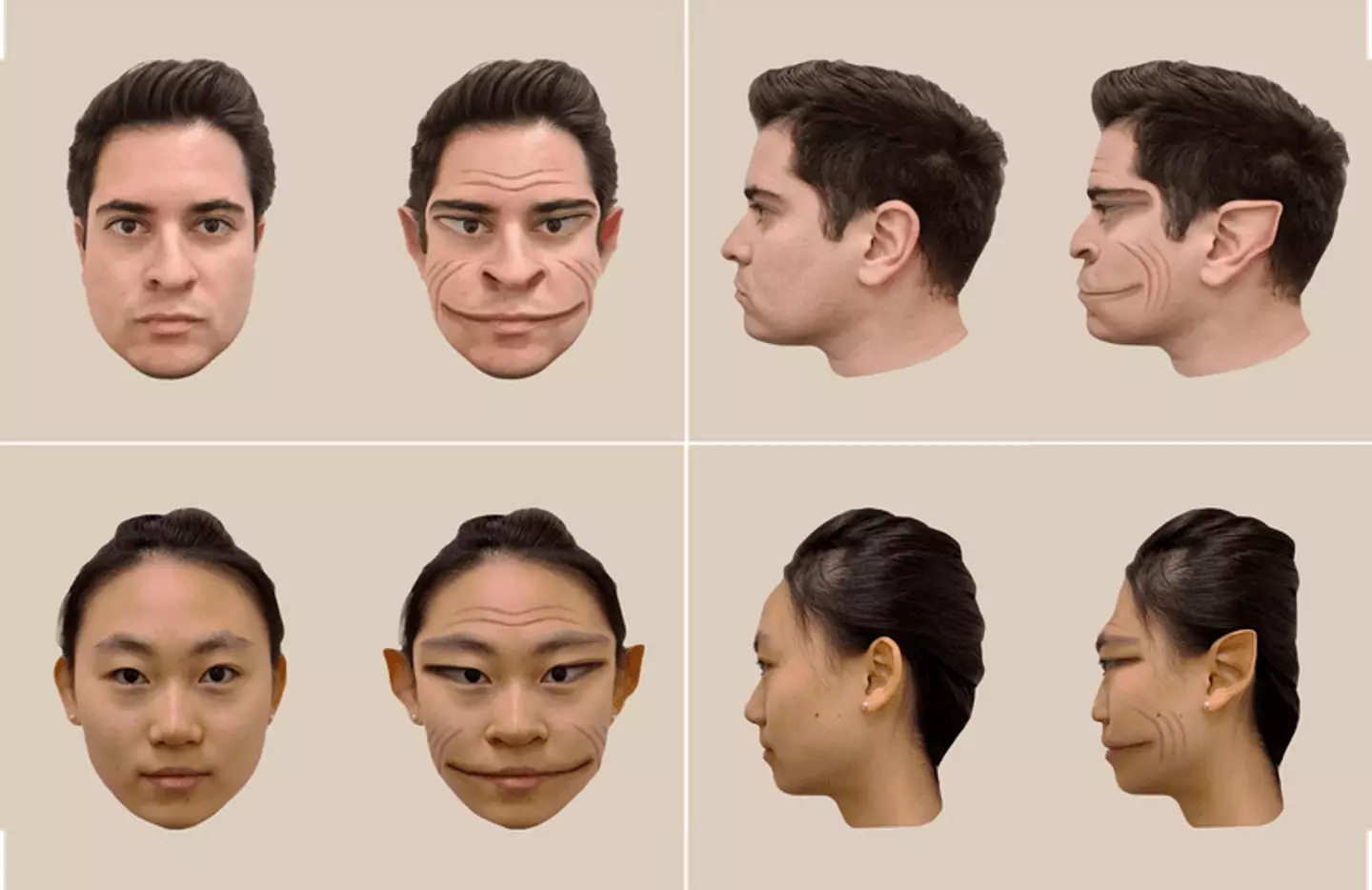
Have you ever wondered whether you see the world in the same way as everyone else?
Colors, we know, are things that people can see slightly differently from one another, and of course, there are people who are unable to distinguish colors at all.
But, what about people's faces? You'd assume they all look the same to all of us, right?
Well, it turns out that isn't actually always the case, as for a small minority of people, there is a distorted alternative to how we all look.
Advert

In fact, for the very first time, researchers have been able to provide a visual on how people's faces look this small minority - and if this looks familiar to you, you could have a rare neurological condition.
The images, provided by the study's lead author Antônio Mello, a PhD student in the Department of Psychological and Brain Sciences at Dartmouth College, shows the strange demonic way in which people with a condition called prosopometamorphopsia (PMO) might see faces.
Though it's important to note that the distortions will differ depending on the person.
PMO is thought to be extremely rare with only 75 known cases across the world, so little is known about the condition.
Being able to decipher what people with PMO can see is, of course, tricky because there's no guarantee a person will be aware that what they're seeing is any different.
Mello wrote in the study, published in EurkAlert: "In other studies of the condition, patients with PMO are unable to assess how accurately a visualization of their distortions represents what they see because the visualization itself also depicts a face, so the patients will perceive distortions on it too."

However, they did manage to find a 58-year-old man with PMO who only sees distortions when he looks at faces in real life, but not when they appear on a screen or on paper, giving him a particularly unique perspective on the condition.
The man was therefore able to look at the images Mello and team created to confirm whether the distortions were accurate to the differences he sees in real life.
Mello continued: "Through the process, we were able to visualize the patient's real-time perception of the face distortions."
Given the rarity of the condition, many of the patients reporting being misdiagnosed, with multiple people being told they had mental health conditions.
Senior author Brad Duchaine, a professor of psychological and brain sciences and principal investigator of the Social Perception Lab at Dartmouth, explained: "We've heard from multiple people with PMO that they have been diagnosed by psychiatrists as having schizophrenia and put on anti-psychotics, when their condition is a problem with the visual system.
"And it's not uncommon for people who have PMO to not tell others about their problem with face perception because they fear others will think the distortions are a sign of a psychiatric disorder. It's a problem that people often don't understand."
